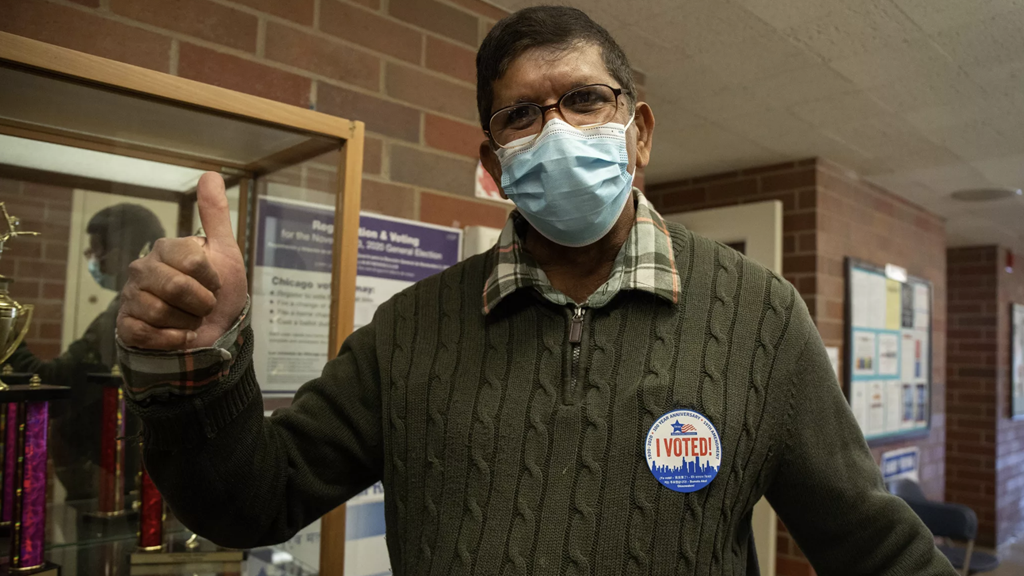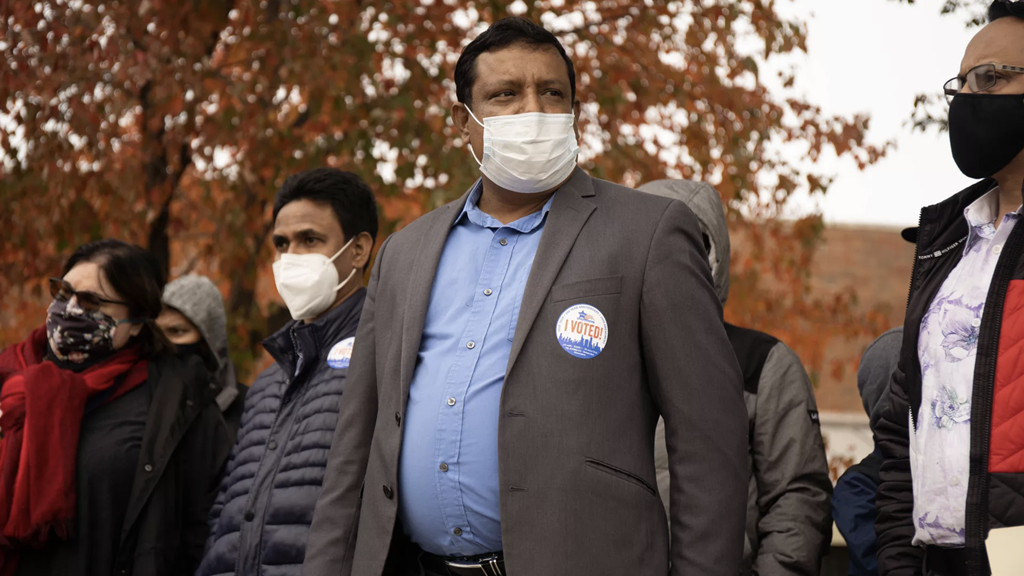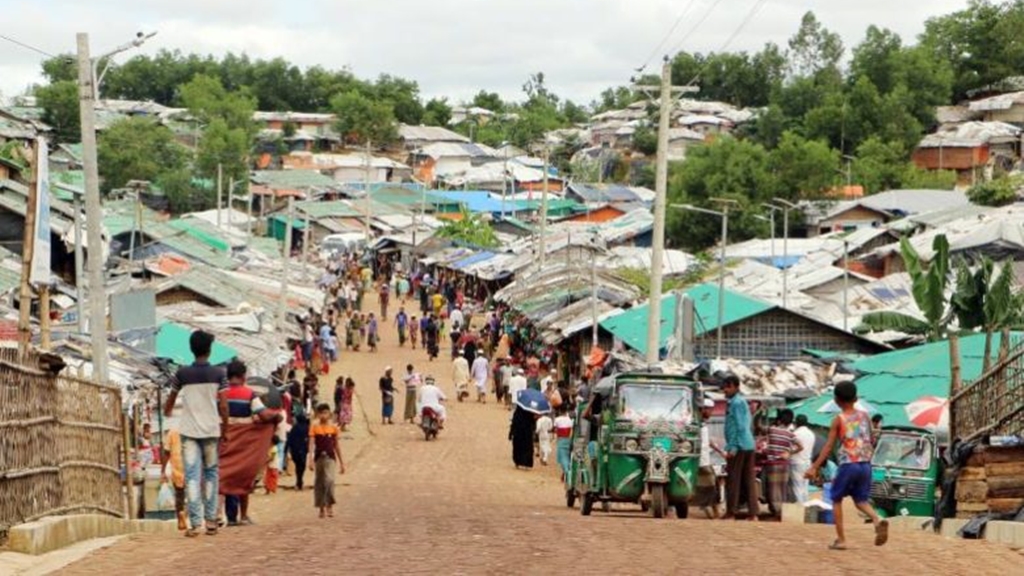
Stripped of citizenship in Myanmar, Rohingya immigrants find new home in Chicago — and a chance to vote for the first time
- 22/10/2020
- 0
By
Chicago is now home to about 2,000 Rohingya, making it the largest Rohingya population in the United States.
On Tuesday, Abdul Jabbar Amanullah completed a long journey that he said he could never envision as a Rohingya child growing up in Myanmar — at the ballot box as an American voter.
That’s because in 1982, a few years before Amanullah was born, Myanmar stripped the Muslim-minority Rohingya of citizenship, rendering them effectively citizens of nowhere. They also were stripped of their right to vote, work, education and health care.
Growing up in that atmosphere — the United Nations describes the Rohingya as among the most persecuted people in the world — Amanullah’s goal was to escape. In neighboring Malaysia, he fared poorly, getting arrested 10 times after entering illegally.
But his fortunes changed in 2012, when, with the help from the U.N., Amanullah, 35, legally moved to Chicago, now home to about 2,000 Rohingya, making the city home to the largest Rohingya population in the United States.
Shortly after, Amanullah began working at the Rohingya Cultural Center, 2740 W. Devon Ave., in West Ridge, where he is now a senior case manager. In 2018, Amanullah became a U.S. citizen, paving the way for Tuesday, when he voted for the first time in his life.
Before voting, Amanullah drove about a dozen other Rohingya community members in a van to the polling station at Warren Park, so all of them could vote for the first time, including his wife, Rehana Ahmed, whom he married two years ago in Chicago.
After waiting in line for nearly an hour, the group came out smiling and proudly displaying “I voted” stickers. Many struggled to put their feelings into words.

“I’m not sure it’s hit them yet. This is huge. They worked so hard for this,” said Susan Chestnut, who teaches citizenship classes at the cultural center, as she held back tears.
“Usually as a teacher, I plant seeds but don’t get to see them blossom, but this I got to see. And this election is so important, it’s really about their life. It can impact their family from being able to come here.”
Chestnut added that the Rohingya community members are aware of the positions of the candidates and tend to prefer Joe Biden over President Donald Trump.
After casting his vote and walking out of the polling place, Amanullah said “I’m so excited and proud of this country. I feel like I have a future now.”
His feelings were echoed by 46-year-old Bibi Sabura, who voted for the first time after becoming an American citizen in June.
“This is amazing,” Sabura said.
Nasir Zakaria, director of the Rohingya Cultural Center and first-time voter, said he felt being able to vote confirmed his status as a citizen.
Zakaria said that “no matter who wins, we will say congratulations to that person.”
The first-time Rohingya voters were also met outside the polling station by a group of Rohingya community members who aren’t citizens yet but came to support them. Among those people were 35-year-old Imran Mohammad, who said he was excited for his fellow Rohingya.
“It’s truly amazing to see everyone vote. We didn’t have that opportunity back home,” Mohammad said.








